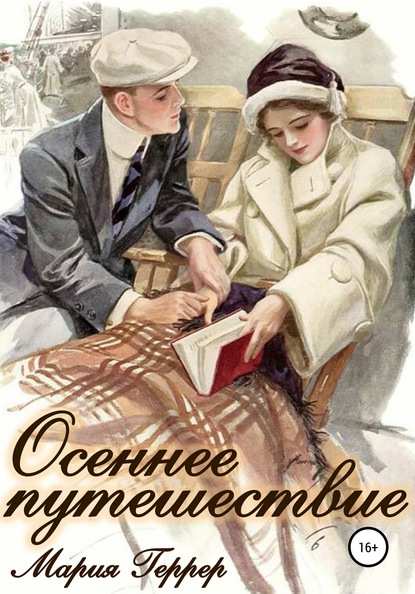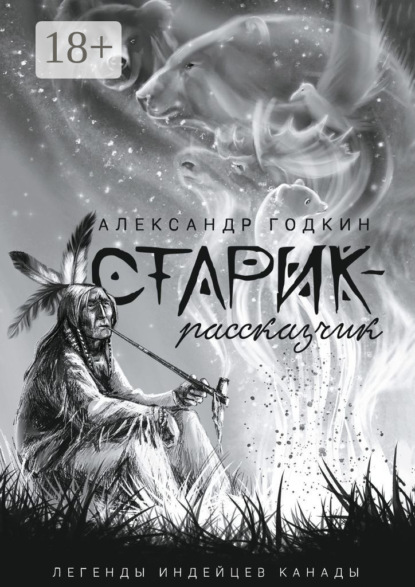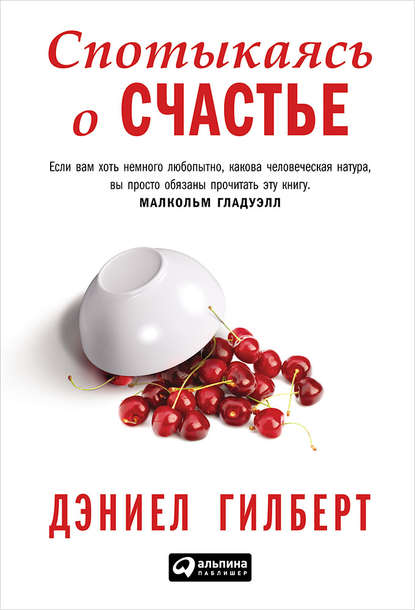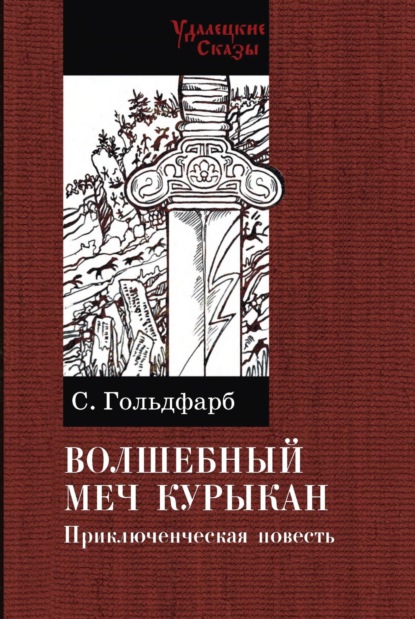Tidegarde: Lacuna
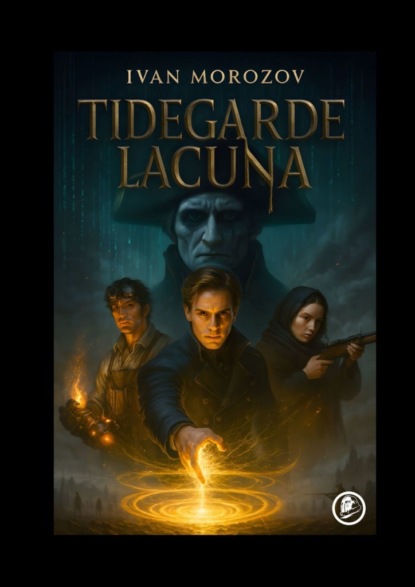
- -
- 100%
- +
The twelve masters of the Lodge of the Double-Headed Eagle convened with visible irritation. They filed into the windowless chamber of dark oak, their faces masks of strained patience. The air, thick with the scent of old wood and the faint, cloying sweetness of beeswax, felt heavy, stagnant. They were men who measured time in generations, and his urgency was an insult to their deliberate pace. Sineus stood before them, not as an instrument awaiting orders, but as a herald of a coming storm.
– I have seen it, – he began, his voice cutting through the formal silence. He did not wait to be acknowledged. He described what he had witnessed through the Chronos Telescope, the complex apparatus of brass and lens that allowed the Lodge to see the memory of distant places. He spoke of the French siege weapon, the Lethe Mortar, and the hollow iron shell that released not fire, but a shimmering, silent mist.
He explained what the mist did. He did not use the language of theory, but of a man who had watched a wound open in the world. He told them how the memory-script of an entire village – its people, its history, its very right to exist – had not been cut or damaged, but annihilated. Burned to nothing.
– It leaves behind a void, a Lacuna, – Sineus said, his voice low and hard. – A hole in the fabric of what is. And it spreads. I watched it consume the land around it at a rate of two meters per minute. It is not a scar. It is a cancer.
A wave of shock and disbelief rippled through the council. One of the masters, a thin man with a tremor in his hand, leaned forward.
– A malfunction, perhaps? The telescope is a delicate instrument. The strain of a long-distance viewing…
– The instrument was perfectly calibrated, – Sineus stated, his gaze unwavering. – The energy signature was unlike anything I have ever seen. It was not the clean snap of a severed thread. It was the shriek of erasure.
The room filled with the sound of uneasy murmuring. They were grappling with a concept that their entire craft deemed impossible. You could cut a memory. You could store it, study it, even let it fade. But you could not unmake it. To unmake a memory was to unmake a piece of the world. It was a violation of the fundamental law.
Then Grigori Levin stood. He was a senior mnemonic chirurgeon, a man whose life was dedicated to the slow, painstaking repair of damaged memories. He was built like a stone buttress, his face a mask of unshakeable certainty, and he moved with the deliberate weight of a man who believed tradition was the only true shield. He waited for the murmurs to die down, his pale eyes fixed on Sineus.
– Your findings are disturbing, – Levin began, his voice a calm, deep baritone that absorbed all panic. – But they are unverified. A single observation from a single operative, no matter how gifted.
He let the words hang in the air. He was not just questioning the data; he was questioning Sineus. He was framing urgency as instability.
– We will not risk schism, – Levin continued, his gaze sweeping across the other masters, who nodded in slow, grateful agreement. – We will not throw our centuries of protocol into the fire based on one frantic report. Panic is a worse enemy than any French weapon.
Sineus watched him, his jaw tight. He saw a loose, dark thread on the cuff of Levin’s perfectly tailored coat. It was a small imperfection, a detail that should have been corrected, and the sight of it was an irritation, a tiny point of chaos in the man’s otherwise crushing order.
– I propose a measured and prudent course of action, – Levin announced, his voice resonating with the comforting authority of the familiar. – We will begin the fortification rituals for the border cities. Smolensk first, then Vyazma. We will reinforce their mnemonic wards, strengthen their memory of loyalty, of their own walls.
It was a plan of profound, suicidal ignorance. A process that would take three to four weeks to complete for each city. It was a strategy for fighting a conventional siege, not a spreading plague of nothingness. It was like building a fortress wall, stone by stone, while the ground it was built on dissolved into dust. But it was a known procedure. It was safe. It was slow. The council members visibly relaxed, their fear replaced by the simple comfort of a task they understood.
Pyotr Orlov, his face pale and drawn, rose to his feet.
– Grigori, you are not listening! – the old archivist pleaded, his voice thin. – The threat is not the city walls, it is the land itself! The weapon is mobile. While we are chanting over Smolensk, it will be annihilating a dozen more villages. Sineus has never been wrong.
Levin turned his head slowly to look at Pyotr, his expression one of mild disappointment.
– Your affection for your student is understandable, Pyotr. But it is not a basis for grand strategy. I call for a vote on my proposal. All in favor of beginning the fortification rituals.
Hands went up around the table. Thick, manicured hands. Old, liver-spotted hands. Eleven of them. Sineus watched as his mentor’s hand rose, followed by one other, a younger man at the far end of the table who could not meet Sineus’s gaze. Two votes against eleven. The thread of his argument, of his desperate warning, was cut. He was utterly alone.
Levin’s gaze returned to Sineus. It was cold, final. The master of the Lodge was now addressing the disobedient tool.
– Your unsanctioned observation has caused considerable disruption, Bielski. Your investigation is concluded. You are to stand down.
The words were hammer blows. Each one drove the nail of his failure deeper.
– You will retire to your family estate and await further instructions, – Levin commanded. – You will not speak of this to anyone. You will not act. Is that understood?
Sineus did not answer. He stood in the suffocating silence, his fists clenched at his sides, the leather of his gloves creaking. He was trapped. His oath to the Lodge demanded obedience. But his sight, the very gift that made him their greatest weapon, showed him the cliff edge they were marching towards. To obey was to be complicit in the world’s end. To disobey was to become a traitor. The price of his silence was their continued ignorance. The price of speaking further was his own career, perhaps his life.
The council was adjourned. The masters rose, their chairs scraping on the polished oak floor. They filed out of the chamber, their conversation already turning back to court politics, to rivalries, to the price of French wine. They left him standing alone in the gloom, the weight of their decision pressing down on him.
The low hum of the lanterns filled the empty room. The air smelled of cold dust and the wax of a sealed tomb.
His oath was to the Empire, not to the twelve blind men who had just condemned it.
His honor, or their survival. A choice had to be made.
The Weight of Ancestors
The ride to Bielski Manor was a study in obedience. For three days, Sineus rode east, away from the spreading stain on the world’s memory, his face a mask of cold duty. He followed the order given by Grigori Levin. He retired to his family estate. He did not deviate from the route by a single meter. He was a tool returning to its sheath, and the desolation of the landscape matched the hollow space inside his chest. The villages grew sparser, the fields more fallow, until finally the road became a private track, choked with weeds.
The manor rose from the overgrown grounds like a monument to sorrow. It had been sealed for a generation, its windows dark eyes staring out at a world that had moved on. The air was heavy, still, carrying the damp smell of leaf rot and wet stone. He dismounted, his boots sinking into the soft earth. The great oak door was bound by a heavy iron lock, cold and slick with moisture. He pressed the Bielski Cipher-Key, the small clockwork cylinder of brass and silver from his pocket, against the keyhole. He hummed the lullaby, the one his mother had sung to him, its complex mnemonic vibrations a secret language only the lock understood. There was a deep, grinding click, and the door swung inward on protesting hinges.
He stepped from the grey afternoon into a deeper gloom. The air inside was thick, stale, a mix of dust and the faint, papery scent of decay. He was confined. He was alone. This was his punishment for seeing what the Memory Duma refused to. He walked through the silent halls, his footsteps echoing in the oppressive quiet, past furniture shrouded in white cloths like rows of patient ghosts. He did not stop until he reached the library.
The library was the heart of the house, a two-story octagon of dark wood and leather-bound spines. A thick coat of dust lay over everything, turning the rich mahogany of the shelves to a uniform, lifeless grey. A single spider’s thread, impossibly fine, stretched from a globe to a bookshelf, shimmering in the weak light from the tall, grimy windows. A draft from the open door made it tremble, then snap. The severed thread drifted down into the shadows, gone. Sineus felt a kinship with it.
He lit a single oil lamp, the small flame pushing back the gloom in a weak, flickering circle. He needed guidance, and the living had failed him. So he would turn to the dead. He ran his fingers along the spines of the ancestral records, the leather dry and cracked beneath his touch. These were the memory-annals of the Bielski line, three hundred years of service and sacrifice, bound and chronicled. He pulled down the first heavy volume, the cover embossed with a faded eagle. He laid it on the great central table, the sound a dull thud in the silence. He opened it. The pages smelled of time itself.
For hours, he searched. He moved from one volume to the next, a silent, methodical progression through the centuries. He was not looking for tales of loyalty. The Lodge had taught him enough of that. He was looking for the opposite. He was looking for precedent. For a justification for the treason that was taking root in his soul. He found it, not once, but four times. Four moments when a Bielski had stood against the established order, had broken their oath for the sake of a higher truth.
There was Kaelan Bielski, who in 1648 refused a direct order to burn a series of Cossack villages, choosing instead to forge a secret truce that saved hundreds of lives at the cost of his military career. He was declared a coward and stripped of his rank, but the records showed the border remained peaceful for fifty years. There was another, Anya Bielski, a woman who in 1721 used the family’s wealth to buy and free a shipment of serfs bound for a Siberian mine, an act that saw her exiled from court.
He found another, a captain of the guard who leaked a conspiracy to the foreign court it targeted, preventing a war but dying in a duel he was meant to lose. Each story was a variation on the same theme: a choice made under pressure, a price paid in status or life, and a result that proved the rebellion right. They were footnotes in the grand history of the Empire, but here in this library, they were pillars.
He felt as if the portraits on the walls were watching him, their painted eyes following his every move. He could almost hear their voices, a chorus of silent judgment and encouragement.
– Did you feel this? – he whispered to the empty room, his voice rough from disuse. He looked up at the portrait of the man who had defied the Tsar. – This cold certainty that you are right, and the entire world is wrong?
The fourth record held him the longest. It was the story of his great-grandfather, Dmitri Bielski, from the year 1775. A series of early thaws threatened to burst the banks of the Volga and drown a dozen villages downstream. The local governor, fearing the cost of evacuation and the disruption to tax collection, forbade any action. He declared the threat exaggerated. Dmitri, a military engineer, saw the truth in the rising water levels. He saw the inevitable.
He did not argue. He did not petition. He gathered his men, seized the governor’s supply barges, and in defiance of a direct command from the Tsar’s own representative, evacuated all twelve villages. He used his family fortune to pay for the relocation. The flood came three days later, a devastating wave that wiped the empty villages from the map. Dmitri was arrested, charged with treason. He was saved from execution only by the personal testimony of a thousand peasants. He lost his commission, his standing at court, his wealth. He saved three thousand lives. The conflict was so clear, the price so high. His conscience demanded a cost, and Dmitri had paid it without hesitation.
Sineus closed the book, the leather sighing as it shut. He stood and walked to one of the tall, arched windows, wiping a clean patch through the grime with the sleeve of his coat. He looked out at the forest that bordered the estate. It was supposed to be a vibrant green, even in the fading light. Instead, the trees on the farthest ridge, some 20 kilometers away, were a sickly, washed-out grey. The edge of the Ashen Tract. The physical proof of the threat he had seen, the cancer that was eating the world, was visible from his own home. It was not a report. It was not an anomaly on a map. It was a stain on his land.
He pressed his forehead against the cool glass. The oath he had sworn to the Lodge felt like a chain, each link forged from tradition and protocol. Grigori Levin’s calm, reasonable voice echoed in his mind. *We will not risk schism. We will begin the fortification rituals.* It was the voice of the governor from 1775, the voice of prudence in the face of catastrophe. To obey was to be a good soldier and watch the world burn. To disobey was to become a traitor and try to save it. The price of his silence was oblivion for thousands. The price of action was his own honor, his safety, his entire life.
He thought of the severed thread of the agent’s memory, dissolving into nothing in the antechamber of the Winter Palace. It had been so clean, so sterile. His career, his place in the Lodge, was a thread just like it. By acting, he would be the one to sever it. But the alternative was to watch the entire tapestry of the world be unmade, not by clean cuts, but by a shrieking, hungry void.
He looked back at the books on the table, at the silent testimony of his ancestors. They had not chosen the easy path. They had not chosen obedience when it meant disaster. They had chosen fire. They had chosen honor, the kind Pyotr had spoken of. The kind forged in defiance.
His decision settled into place, not with a crash, but with a quiet, cold finality. The knot of conflict in his gut dissolved, replaced by a solid core of purpose. His shoulders, which had been hunched with the weight of his indecision, straightened. He was no longer a man trapped by orders, but a man guided by sight. His duty was not to the blind council, but to the people who would be consumed by their blindness.
The last light of day faded from the sky. The library was steeped in shadow, the single lamp a small island of gold in a sea of darkness.
The choice was no longer if he should act. It was how he would begin.
I Choose Fire
The choice was made. It had settled in the library of his ancestors, a cold, hard stone in his gut. Now, in the dead of a Moscow night, Sineus moved through the streets not as a nobleman, but as a ghost. The air was sharp with frost and the distant smell of coal smoke. Each step on the slick cobblestones was a final, irrevocable act. His destination was a place he was sworn to protect, a place he was now about to violate. The Lodge armory.
He reached the unassuming iron door set into the stone foundation of a forgotten trade house. There was no keyhole, no handle. Its only lock was a memory, a ward of shimmering, invisible script that hummed with the question of belonging. To any other, it was an impassable wall. To Sineus, it was a thread to be manipulated. He placed his palm flat against the cold iron, closed his eyes, and reached out with his mind. He did not break the ward. He lied to it. He wove a temporary fiction, a memory of his own authorization, and pushed it into the lock’s simple consciousness. For a fraction of a second, the ward believed him. A low click echoed in the alley. The door swung open into darkness.
He bypassed three such layers of security, each more complex than the last. The final gate was a lattice of shimmering, silver threads that would have shredded the mind of any unauthorized person who touched it. Sineus saw it not as a barrier, but as a loom. He found the master thread, the one that held the pattern together, and with a focused thought, he gently unwove it. The lattice dissolved into a harmless shower of light, reforming behind him as he passed. The price of this entry was a small, sharp pain behind his eyes, a warning of the strain. He had spent ninety seconds turning his own house’s defenses against it.
The air inside was cold and sterile, smelling of gun oil, beeswax, and the faint, electric tang of contained mnemonic energy. Racks of rifles stood in perfect, silent rows. Shelves of sealed canisters held neutralized memories, categorized and labeled. This was the Lodge’s mundane power, the tools for a war he now knew they were not fighting. He ignored it all, his boots echoing on the stone floor as he moved toward the back of the chamber, toward a second, heavier vault door. This was where the forbidden things were kept.
He located the vault he sought. This lock was different, purely mechanical and ancient, but he had studied the schematics. He worked the combination, the tumblers falling into place with heavy, final clicks. The door swung open, revealing a small chamber, its walls lined with lead. In the center, suspended in a shimmering stasis field, was a flawless sphere of solid black material. The Orphic Compass. It was a forbidden artifact, a tool that did not point north, but toward the absence of memory. It pointed toward the Lacuna.
He reached in and broke the stasis field. The sphere, some twenty centimeters in diameter, dropped into his waiting hands with an unnatural weight, a solid twenty-five kilograms of cold, polished night. It was heavier than stone, heavier than lead. It was heavy with purpose. As his fingers closed around it, he felt the final thread of his old life snap. He traded his honor, his safety, and his name for this cold, black sphere. He had committed treason. The air in the armory suddenly felt thin, the silence absolute. He was no longer a tool of the Lodge. He was a thief.
He did not linger. He made his way to the surface, to the small, spartan office Pyotr Orlov kept near the sanctum. The room was empty, smelling of old paper and his mentor’s pipe tobacco. It was a smell of comfort, of guidance. Now it was the smell of betrayal. He found a clean sheet of paper and a pen. His hand did not tremble as he wrote. The ink flowed, a black, stark line against the white.
Three words.
He left the note on the center of the desk, a small white flag of rebellion. “I choose fire.” It was a declaration, a promise, and a farewell. He owed his mentor that much. He owed him the truth of his choice.
The stables were his final stop. He moved with the quiet efficiency of a man who knew his time was short. He did not take the finest horse, but the sturdiest, a dark gelding with a calm eye. He packed saddlebags with seven days of supplies: hard bread, dried meat, a whetstone, and two full canteens of water. He was no longer a nobleman with an estate to supply him. He was a soldier on a solo mission, a rogue agent with nothing but what he could carry. The reins felt coarse in his hands, a rough leather thread connecting him to a future he would have to forge himself.
He led the horse into the pre-dawn gloom of the street and mounted. He did not look back at the sanctum. He did not look back at the glittering spires of the city. He turned the horse west, toward the front, toward the spreading stain of the Ashen Tract. He was a traitor. He was a fugitive. He had no allies, no support, no one in the entire world who would call him friend.
The cold air was sharp and clean in his lungs. The silence of the empty streets was a vast, open space.
He was utterly and completely alone, and for the first time in his life, he felt free.
He rode west to hunt the void alone
The Alchemist’s Bargain
For eight days, the Orphic Compass had been his only guide. It was not a needle swinging north, but a cold, dense weight in his saddlebag, a twenty-five-kilogram sphere of solid night that hummed a low, discordant note against his hip. The hum grew stronger as he rode deeper into the Ashen Tract, the vast wound in the world’s memory. The vibration was a physical thing, a promise of proximity to the void he hunted. He followed it through a landscape bled of all color, under a sky the color of dishwater.
The town appeared as a smudge on the horizon, then resolved into a collection of broken teeth. It was not a ruin of war, not the honest destruction of cannon and fire he had seen on campaign maps. This was a place of deeper wrongness. Buildings sagged as if their very memory of structural integrity had been cut. A church steeple listed at an angle that defied gravity, its bell silent. The ground, a fine grey dust that looked like ash but felt cold as grave dirt, crunched under his horse’s hooves with a sound like breaking bone. He dismounted, the silence of the place pressing in on him, a tangible weight on his eardrums.
He pulled the Orphic Compass from its bag. In the open air, its low hum was a palpable thrum against his palms. The vibration was stronger here, insistent. He was close. He moved down what might have been a main street, past the hollow shells of homes. A frayed rope, once part of a shop sign, dangled from a rusted bracket, its end a tangle of severed threads that danced in a wind he could not feel. He was a ghost in a city of ghosts, his purpose a cold, hard stone in his gut.
A flicker of movement in a second-story window. He froze.
Too late.
A thin, dark wire stretched taut across his path, nearly invisible against the grey dust. His boot caught it. The wire snapped with a sharp *twang*, a single, plucked note in the oppressive quiet. It was a sound of purpose. A sound of ambush.
*Click.*
The noise was sharp, metallic, unmistakable. The sound of a rifle bolt being driven home. It came from the window where he’d seen the movement, to his left. Another *click* echoed it from a pile of collapsed masonry to his right. A third sounded from the doorway of a ruined bakery directly behind him. He was in a kill box. Perfectly triangulated. These were not bandits.
He slowly raised his hands, his gaze sweeping over the three positions. They emerged from the ruins not with a rush, but with a slow, deliberate confidence. They wore no uniform, only a mismatched collection of patched leather, heavy wool, and hardened expressions. The first was a woman, emerging from the rubble to his right. Her face was smudged with soot, her dark hair tied back severely. She held her rifle with an unnerving stillness, its stock pressed tight to her shoulder. She was not a soldier, but she knew her weapon.
The leader stepped out of the bakery behind him, moving to block his only path of retreat. He was tall and lean, with dark, curly hair wild with grease and neglect. His sharp brown eyes burned with a fierce, angry intelligence. He wore a heavy leather apron over a simple linen shirt, and in one hand he held a pistol, its muzzle a dark, unblinking eye. In his other, he carried a strange device of brass and copper, fitted with what looked like a series of tuning forks. Sineus could smell the faint, sharp scent of ozone and strange chemicals clinging to him.
– Another of the Tsar’s butchers, come to admire the rot, – the man said. His voice was rough, laced with an Italian accent.
Sineus kept his hands where the man could see them. His heart was a steady, cold drum in his chest. This was the price of his choice. No allies, no authority, only his own skill to keep him alive.


